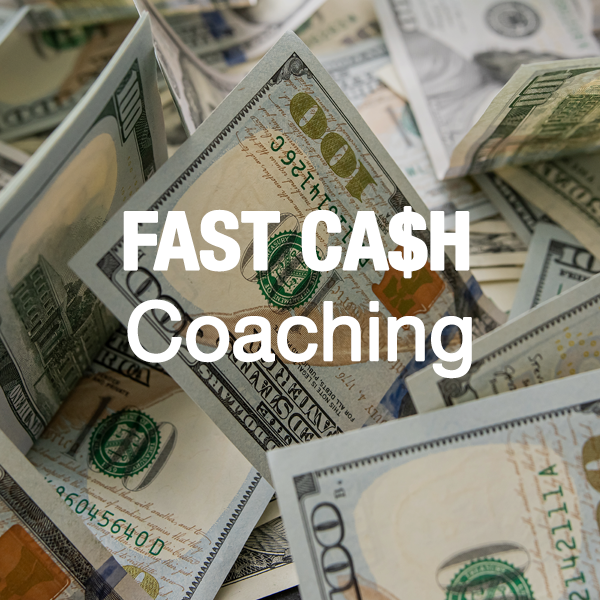Breaking into real estate can feel daunting, especially if you’re starting with a modest investment. Many aspiring investors assume they need tens of thousands of dollars to get started. However, with the right strategies and a willingness to learn, you can begin building passive income with as little as $1,000.
Why Passive Income Matters
Passive income in real estate allows you to grow wealth while minimizing active work. Unlike a traditional job, where income is tied to hours worked, passive income streams can continue generating returns even when you’re focused elsewhere.
Even a modest 10% return on a $1,000 investment is just a start, but it’s enough to build momentum. The goal is to learn, engage, and gradually expand your investment portfolio.
1. Start Small with Fractional Ownership
One of the most accessible ways to enter real estate with limited capital is through fractional ownership. Crowdfunding platforms that operate under Regulation A (Reg A) allow investors to purchase small shares of larger real estate projects, sometimes starting with as little as $50–$500.
Benefits include:
- Low entry cost for beginners
- Exposure to professionally managed real estate
- Learning opportunities without taking on full property ownership responsibilities
These platforms pool funds from multiple investors to acquire commercial property or apartment complexes, distributing rental income proportionally. This model enables small investors to participate in deals they would otherwise be unable to access.
2. Real Estate Investment Trusts (REITs)
Investing in REITs, which are companies that own or finance income-producing real estate, is another beginner-friendly approach. Publicly traded REITs function similarly to stocks and often pay regular dividends, providing a passive income stream without the need to manage properties directly.
Key advantages:
- Liquidity: REITs can be bought and sold on stock exchanges
- Diversification: Exposure to different types of real estate assets
- Minimal management: Professional teams handle property operations
Even a small allocation into dividend-paying REITs can help investors experience the compounding benefits of reinvested earnings over time.
3. Leveraging Networks and Partnerships
For those with limited cash but valuable assets such as credit, skills, or networks, partnerships offer a pathway into real estate. Contributing resources, such as creditworthiness or marketing expertise, to a larger group can secure a stake in property deals.
Tips for leveraging partnerships:
- Offer credit or financial tools to help secure loans
- Bring unique skills, such as marketing or property management experience
- Partner with experienced investors active in local markets
Collaborating with knowledgeable investors accelerates learning and reduces risk, emphasizing the value of guidance and mentorship.
4. Exploring Short-Term Rental Opportunities
Platforms like Airbnb and VRBO enable small investors to enter the real estate market indirectly through property brokering or marketing services. For instance, connecting property owners with tenants can earn a percentage of rental income without owning property.
Considerations:
- Requires marketing skills and local knowledge
- Offers immediate income potential
- Less capital-intensive than traditional property acquisition
This method enables investors to gain exposure to real estate operations without incurring significant upfront costs.
5. Wholesaling: High Potential, High Knowledge Requirement
Wholesaling involves identifying properties for sale and connecting buyers with sellers, earning a fee for the transaction. While profitable, it requires market expertise and strong networking. Beginners with limited experience may find this approach challenging.
Pros and cons of wholesaling:
- Pros: No significant upfront investment, potential for quick returns
- Cons: Requires market knowledge and connections
- Best suited for investors with some exposure to real estate dynamics
6. Avoid Speculative Flipping
Pooling small investments for short-term house flips is risky and often unsuccessful without experience and mentorship. Safer approaches include REITs or crowdfunding platforms, which allow investors to learn while participating in structured deals.
7. Treat Every Dollar as a Long-Term Investment
Even a modest $1,000 can grow significantly with disciplined investing and compounding returns. Tools like online compounding calculators can illustrate how adding $100–$200 monthly over several years can dramatically increase wealth.
Key strategies:
- Start early and remain consistent
- Reinvest earnings for compound growth
- Focus on sustainable, long-term growth rather than immediate returns
Small, consistent actions compound into meaningful wealth over time, highlighting that time in the market beats trying to time the market.
8. Teach Financial Literacy at Home
Involving family in financial education is crucial. Conversations about property ownership, rental income, and investment opportunities can start early, helping the next generation develop financial acumen.
Ideas include:
- Exploring small-scale investments as a family project
- Visiting local businesses and properties to discuss ownership potential
- Teaching children how income-producing assets work
Conclusion: Start Learning, Start Investing
Breaking into real estate with $1,000 is less about immediate gains and more about education, strategy, and building relationships. By starting with fractional ownership, REITs, or partnerships, you can gain exposure, understand markets, and gradually expand your portfolio.
The key takeaway: invest small, learn actively, and think long-term. Every dollar invested wisely today can grow into a substantial passive income stream tomorrow.
Actionable Steps:
- Explore Reg A crowdfunding platforms and REITs
- Seek mentorship and partnership opportunities
- Use credit and skills strategically to access deals
- Track growth using compounding calculators
Real estate wealth is accessible to anyone willing to start small, stay consistent, and leverage resources effectively. Your first $1,000 may be modest, but it could be the seed of a lifelong passive income strategy.




